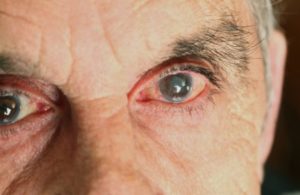 Millions of Americans are affected by dry eye syndrome, yet there is a lot of confusion about the condition. Below, the team at Berks Eye Physicians and Surgeons answers the most commonly asked questions about dry eye. If you need clarification about any of this information, we invite you to call or email our practice.
Millions of Americans are affected by dry eye syndrome, yet there is a lot of confusion about the condition. Below, the team at Berks Eye Physicians and Surgeons answers the most commonly asked questions about dry eye. If you need clarification about any of this information, we invite you to call or email our practice.
What is dry eye?
Dry eye syndrome is a condition where the quantity or quality of the eye’s tears declines and cannot sufficiently lubricate the eyes. The risk of developing dry eye climbs with advancing age. Women are more likely to develop dry eye than men.
Why are tears important?
Tears bathe, nourish and protect the surface of the eye and facilitate clear vision and sharp focus. The quality of the tears is just as important as the quantity of tears produced. Healthy tears have three layers — water, mucous and oil — and if the composition is off, the tears may evaporate too quickly from the surface of the eye, failing to moisturize it properly.
How do I know if I have dry eye?
Dry eye usually causes a scratchy sensation or a foreign body sensation, like a particle or piece of debris is trapped in the eye. The condition can also cause discharge, red eyes and blurry vision.
What causes dry eye?
The root cause of most causes of dry eye is a malfunction of the meibomian glands, which are responsible for producing the oily layer of the tears. Without enough oil, the tears evaporate too quickly off the surface of the eye. These cases are called “evaporative dry eye” cases.
“Aqueous deficiency dry eye” occurs when the lacrimal glands do not produce enough tears to lubricate the eyes. This may happen because of advancing age. It can also occur in people with autoimmune disorders, such as lupus, rheumatoid arthritis and Sjögren’s syndrome, or people who take medications like antihistamines or decongestants.
Hormonal imbalances are also to blame; some women develop dry eye while pregnant or after menopause.
How can I get rid of dry eye symptoms?
The treatment for dry eye depends on the specific cause. Artificial tears can reduce some of the painful or irritating side effects, but they don’t address the source of the problem. Medications like Restasis® or Xiidra® can be taken to boost tear production. Sometimes the meibomian glands need to be expressed so they can function properly. We can do this manually or by using a system called LipiFlow®.
How can I learn more?
If you are experiencing symptoms of dry eye and would like to discuss diagnosis and treatment options, please call or email Berks Eye Physicians and Surgeons today.
 1802 Paper Mill Road, Wyomissing, PA 19610
1802 Paper Mill Road, Wyomissing, PA 19610

